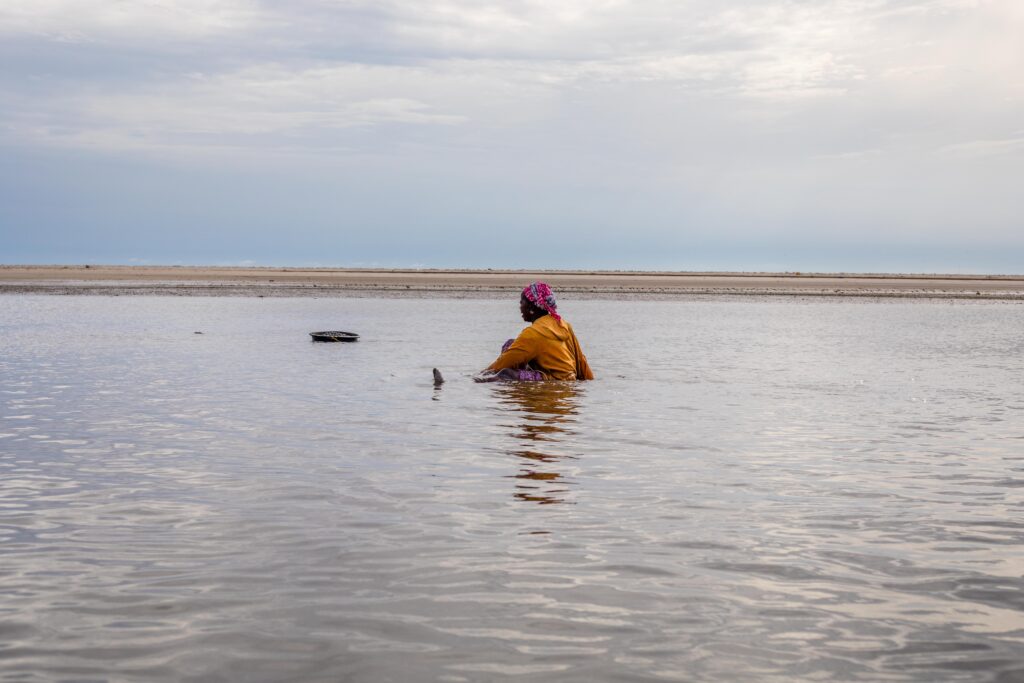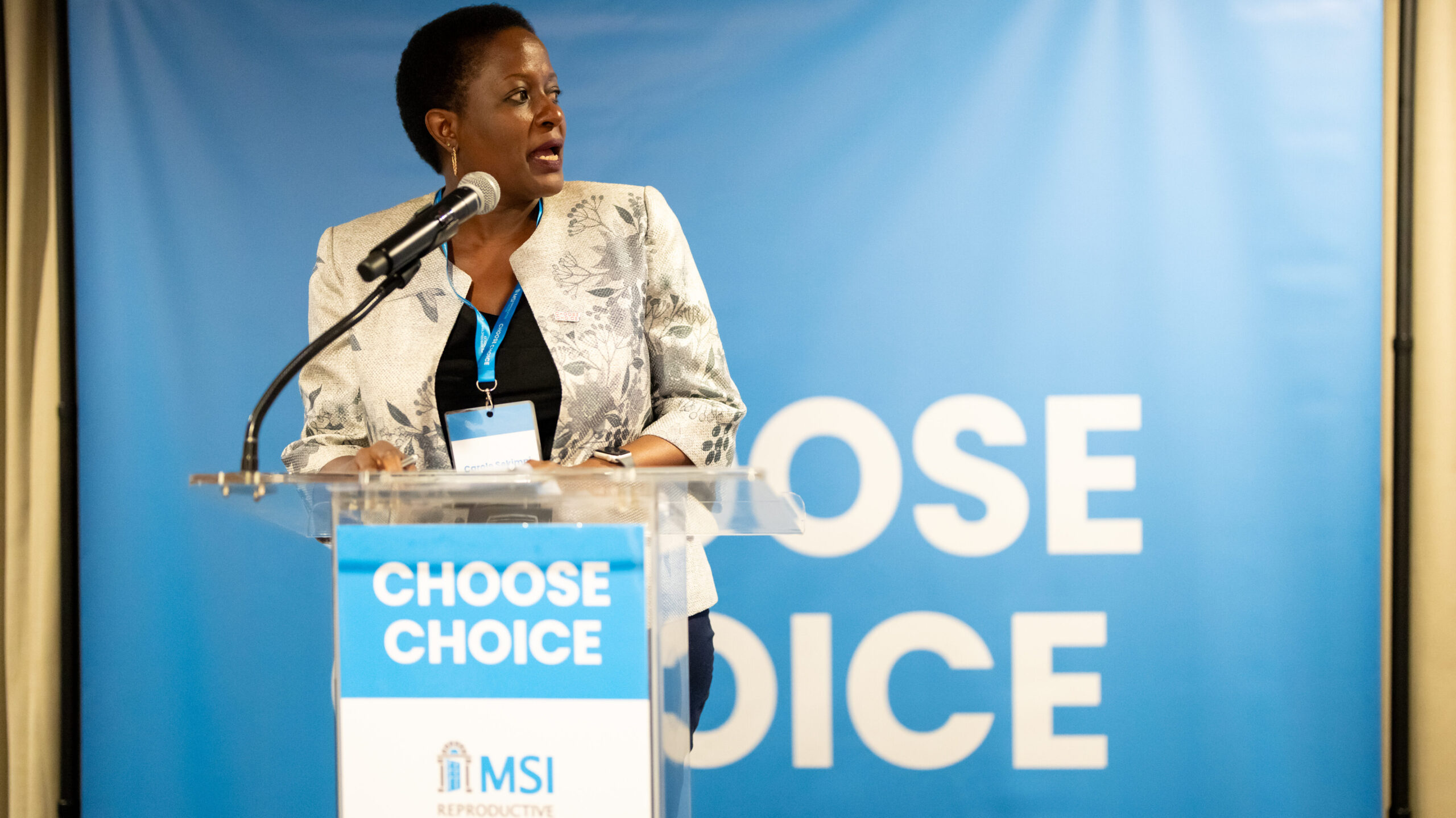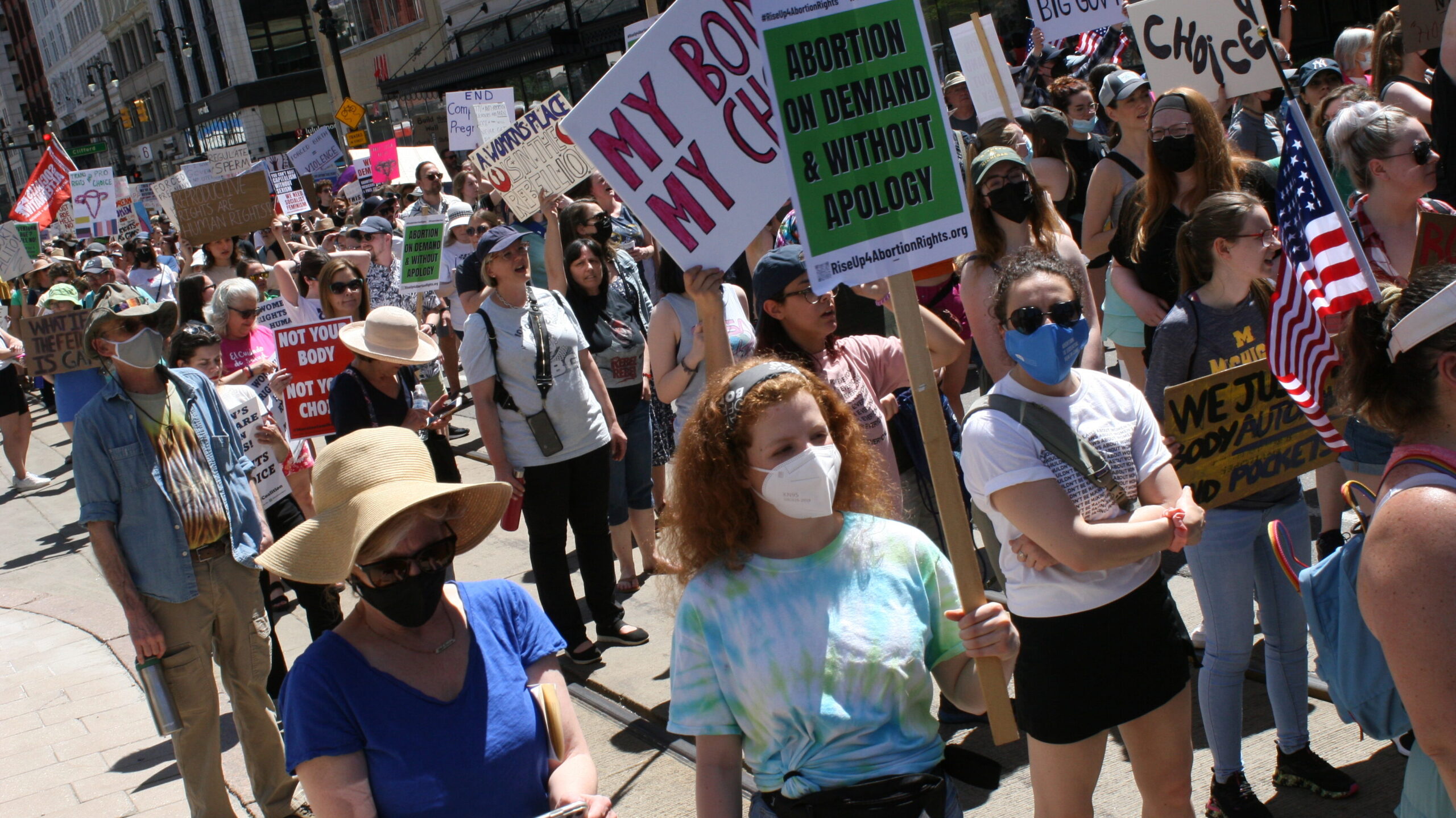
Community health worker Elizabeth wades barefoot through the mangrove swamps, bringing reproductive healthcare to remote communities on Bonthe Island.
Getting to them isn’t easy. She and her team have to travel by boat from mainland Sierra Leone before trekking through marshy terrain, but for Elizabeth her mission is unwavering: “We go wherever we are needed.”
MSI Reproductive Choices has been providing much-needed reproductive healthcare in Sierra Leone since 1986 and is known locally as “de mammy fo welbodi” or “the mother of health”. The team has been there for women through the civil war, the Ebola epidemic, and now a global pandemic, training and mentoring government health care workers (HCWs) and in Elizabeth’s case, bringing care directly to hard-to-reach areas like Bonthe Island, where women and girls have no-one else to turn to.
But following the reduction in the UK commitment to 0.5 per cent of Gross National Income (GNI), this desperately needed service is at risk. Life-changing sexual and reproductive health services will be savagely impacted, with cuts coming from all sides. Frontline healthcare workers have been hit by the reduced funding to the UK government’s flagship WISH programme, which over the last two years has saved the lives of 22,000 women, while vital contraceptive supplies have been devastated via the brutal cuts to UNFPA.
The speed and magnitude of these cuts will undermine trust between women and healthcare providers like Elizabeth, and we fear the damage to women’s lives and futures will be worse than that caused by Trump’s Global Gag Rule. During Trump’s administration, cuts to USAID funding prevented MSI from serving an estimated 8 million women with family planning across our programmes: services that could have prevented an estimated 6 million unintended pregnancies, 1.8 million unsafe abortions and 20,000 maternal deaths. We are now concerned that the impact of the UK aid cuts could be even worse.
As MSI’s Director for the West & Central Africa region, I am already seeing this same devastating outcome repeated, as our programmes are facing the agonising choice about which health teams and services to close. Last year In Sierra Leone, WISH and other UK Aid projects enabled our programme and government partners to provide contraceptive and other health services to over 200,000 women. While we greatly appreciate FCDO efforts to continue to support some activities in 2021, what we will be able to provide this year, let alone next year, will inevitably be far less.
In Mali, more than 30% of demand for contraception is met by MSI supported services, while in Burkina Faso, MSI is the main provider of long-acting forms of contraceptive. The closure of WISH across these programmes will significantly reduce access to contraception, driving unintended pregnancies, and as we saw under Trump’s administration, unsafe abortions and maternal deaths.
The focus of the announcements has been on pounds and programmes, but it’s the lives and futures of millions of the world’s poorest and most vulnerable people that are on the line. People in remote areas will have nowhere else to access sexual and reproductive health services, women will go back to the practice of childbearing year in year out, teenage pregnancy will rise, denying girls an education and death rates will increase. These cuts will not only put lives at risk today, they risk undoing years of progress, with global ramifications.
For those who say we cannot afford to do it, we say we cannot afford not to. There is never a good time to step back from this empowering, lifesaving work, but right now is perhaps the worst. Covid-19 has left health systems at breaking point and communities who have done the least to cause the climate crisis are already suffering from its effects. These crises disproportionately affect women and girls, and without reproductive choice, the consequences are even more deadly.
You cannot underestimate the significance of contraception in giving girls and women control over their lives and futures. When girls can have children later, they can finish their education, become financially independent and contribute to society. They can space their births further apart, which means healthier lives for them and their babies.
With reproductive choice, a fairer future is within reach. Now we need to protect it.
– Sue Holland, MSI’s Regional Director for the West and Central Africa region
It only costs £6 per year – or 2 pence / 3 cents per day – for MSI to protect a girl or young woman from an unintended pregnancy. This reproductive choice keeps girls in school, supports women to lead, and helps to build more equal communities. Join us in making choice possible.
To partner with MSI to make reproductive choice a reality for all, contact our Partnerships & Philanthropy team via [email protected]








